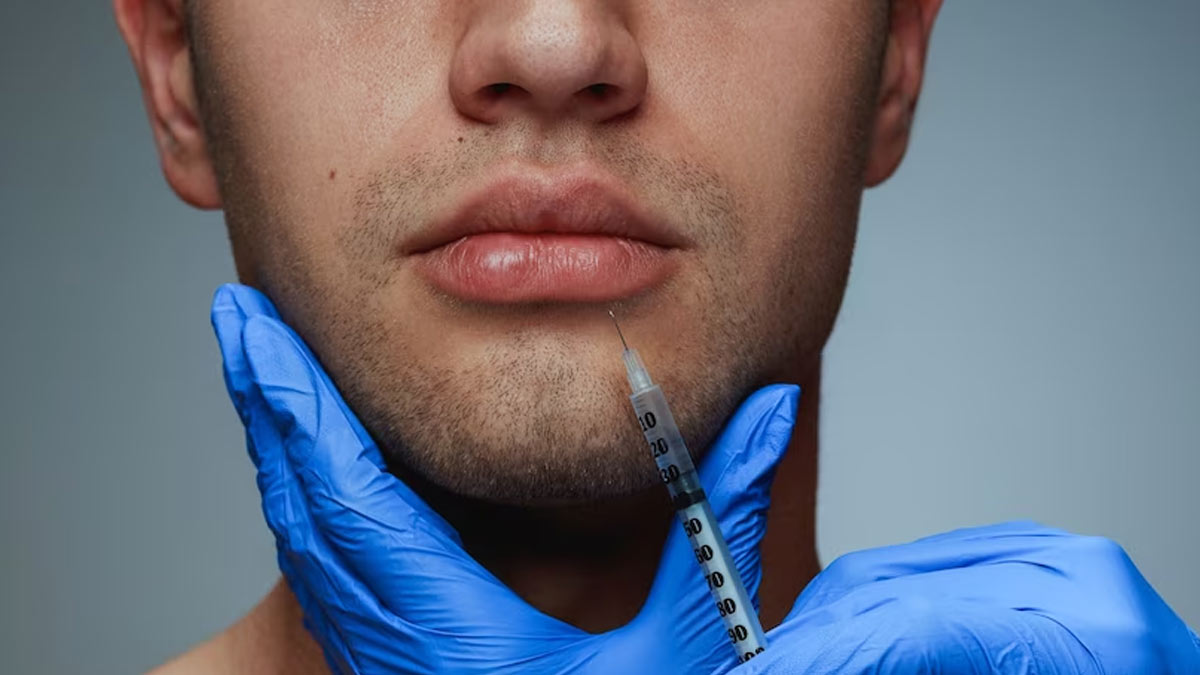
In a tragic incident a man in Hyderabad died during a smile designing surgery procedure ahead of his wedding in Jubilee Hills earlier this month.
The father of the deceased has accused the hospital where his surgery was taking place for fatal negligence. According to him, his son was given anaesthesia during the surgery procedure and he fell unconscious.
Table of Content:-
Can face or smile enhancement surgeries be fatal? Can administration of anaesthesia cause death? Let’s understand from an expert. To get the clarity of whether smile enhancing surgery is safe, OnlyMyHealth team connected with Dr Joy Shah, Dermatologist, Founder of Beagle Lasers, Surat.
What Is Smile Designing Surgery?

Smile design is a cosmetic dental procedure that falls under the domain of cosmetic dentistry. Dr Shah said, “Smile designing surgery aims to correct teeth imperfections and enhance both dental health and appearance. This personalised treatment delivers enduring outcomes, resulting in a straighter, whiter, and more naturally appealing smile.”
Is The Surgery Safe?
According to Dr Shah, smile designing surgery is generally safe when performed by qualified and experienced dental professionals. However, there are certain risks and potential complications linked with smile design surgery, like any other surgical process. Talking about risks, Dr Shah said, “Allergic reactions to anaesthesia or dental materials, infection, bleeding, nerve damage, and dissatisfaction with the aesthetic results can be some of the risks. To ensure safety and minimise risks, it is essential for patients to undergo a thorough evaluation by a qualified dentist. It is crucial to discuss their medical history and expectations, and receive personalised treatment plans tailored to their unique dental needs.
Dr Shah emphasised on choosing a reputable dental clinic with experienced practitioners who adhere to strict safety protocols and utilise advanced techniques and materials for smile design procedures.
Also read: Bio Injectables For Cosmetic Treatments: Expert Lists Its Benefits And Limitations
Can Faulty Anaesthesia Administration Turn Fatal?

The father of the deceased in the above incident alleged that his son died because of faulty dosage of anaesthesia. On this, Dr Shah said, “Faulty anaesthesia administration can lead to adverse outcomes, including death, in dental procedures. Several factors can contribute to anaesthesia-related complications, including dosage errors, allergic reactions, equipment malfunction, inadequate monitoring, inexperience or negligence, patient factors, and drug interactions. It is crucial for dental clinics and healthcare providers to stick to strict protocols and ensure proper training of the person involved in anaesthesia administration, and maintain high standards of safety to minimise the risk of complications and ensure patient’s well-being.”
According to a study, “A critically ill patient with impaired function of multiple organs seems to be at a higher risk of anaesthesia related death than a more healthy patient.”
What Should You Know Before A Smile Designing Procedure?

Before undergoing a smile design surgery, one should spend good time on research and consider several important factors and aspects put forth by Dr Shah. “First and foremost, it is crucial to have a clear understanding of what the procedure entails, including the specific techniques involved, expected outcomes, and potential risks and complications. Consulting with a qualified and experienced cosmetic dentist specialising in smile design procedures is important. Any pre-existing dental issues, such as decay or gum disease, may need to be addressed beforehand.”
He further added, “Exploring different treatment options, such as teeth whitening, dental bonding, or porcelain veneers, is important to determine the most suitable approach. Long-term maintenance and care are essential to preserve smile design results, requiring good oral hygiene practices, regular dental check-ups, and avoidance of habits that may compromise dental restorations. By considering these factors and discussing them with their dentist, patients can make informed decisions about smile design surgery, achieving optimal outcomes while ensuring oral health and well-being.”
Also watch this video
How we keep this article up to date:
We work with experts and keep a close eye on the latest in health and wellness. Whenever there is a new research or helpful information, we update our articles with accurate and useful advice.
Current Version